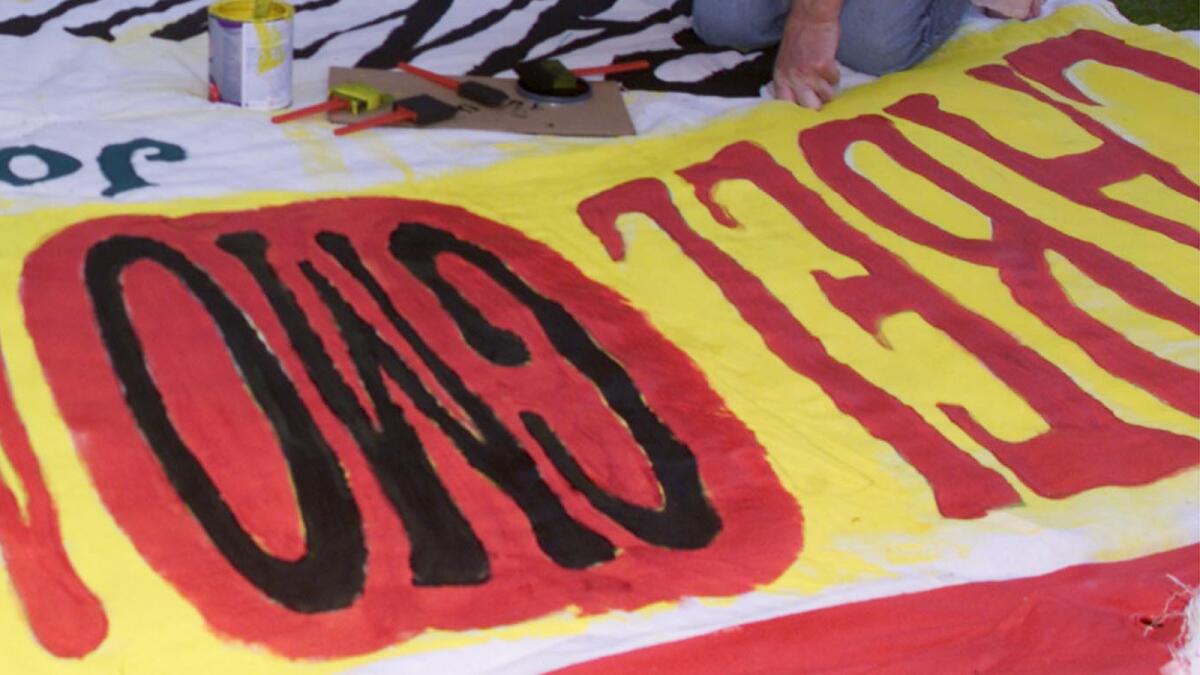Ban on GMO plants advances at L.A. City Hall

Citing environmental and health concerns, a panel of Los Angeles lawmakers Monday advanced a citywide ban on growing genetically modified crops.
With limited argicultural land in the city, the ban would be “largely symbolic,” said Councilman Mitch O’Farrell, who co-authored the proposal.But it would send a “clear signal that in Los Angeles we want to return to GMO-free food,” he said in an interview.
The proposal by O’Farrell and Councilman Paul Koretz seeks to ban the sale and planting of genetically modified crop seeds, fruit trees and plants.The council’s health committee agreed to draft an ordinance imposing the ban. The full council will consider the matter Tuesday.
Unlike crops grown through selective breeding to be bigger or firmer, genetically modified organisms, or GMOs, have had their DNA altered in a laboratory. Opponents of GMOs say they pose a threat to biodiversity and may be unsafe for consumption.
Gladys Limon, a staff attorney with Communities for a Better Environment, said some GMOs are altered to be resistant to pesticides, which allows larger amounts of chemicals to be sprayed on crops. That has “direct and even deadly effect on human health,” she said.
Vermont lawmakers recently enacted a requirement that GMO foods be labeled. Oregon voters will consider a similar measure in November. In 2012, an unsuccessful California ballot measure sought to require labeling of GMO foods.
Supporters of the L.A. ban note 52% of Los Angeles County voters supported Prop. 37. Nearly 50 community organizations, business owners and city residents submitted letters to city lawmakers supporting the ban.
No one spoke in opposition to the ban at Monday’s meeting. Opponents of GMO regulations argue that genetically modified crops are no different than those farmers have been selectively breeding for centuries, and pose no added health risk. They also say genetically modifying organisms have larger crop yields and hardiness and the potential to alleviate world food shortages.
O’Farrell said the L.A. ban is important because urban farming is becoming more popular. Two L.A. councilmen introduced a motion earlier this month that calls for landowners to receive tax breaks for turning empty lots into urban farms.
soumya.karlamangla@latimes.com
Follow @skarlamangla on Twitter for more L.A. government news.
More to Read
Sign up for Essential California
The most important California stories and recommendations in your inbox every morning.
You may occasionally receive promotional content from the Los Angeles Times.










